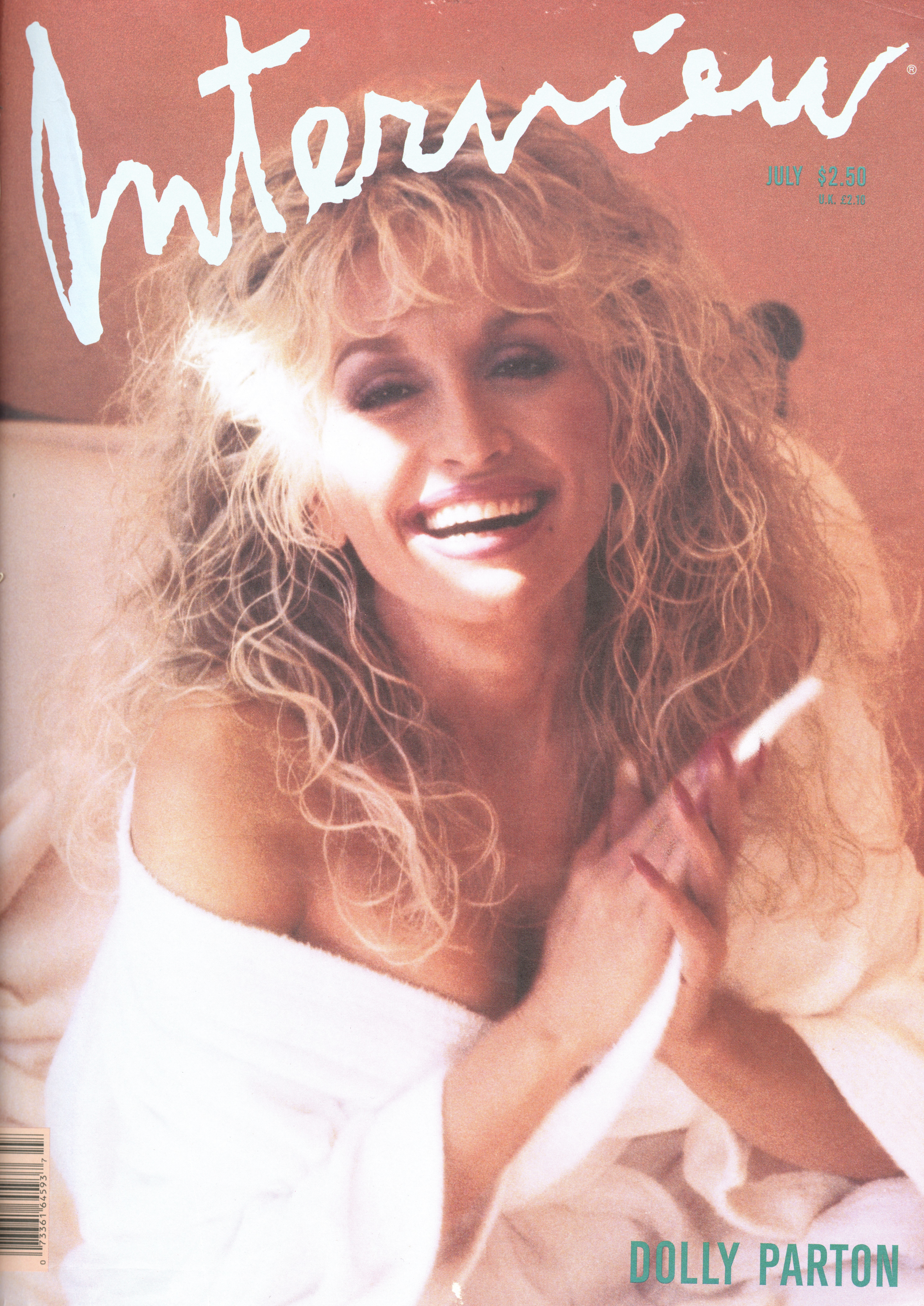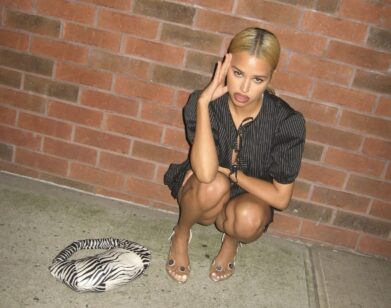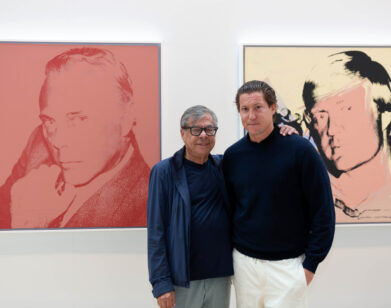That Time Dolly Parton Refused Her Song Rights to Elvis

Interview Magazine, July 1989. Photo by Herb Ritts.
That Time When is Interview’s weekly trip through the pop-cultural space-time continuum, where we return to some of the most overlooked moments from issues past. In this edition, we revisit our July 1989 cover story, featuring the world famous country bombshell sweetheart Dolly Parton, to find out how her and Elvis never came face to face.
Parton; Presley: Both inspire visions of hair-sprayed ‘dos, white rhinestone jumpsuits, and a legacy of impersonators. Both were pioneers in their genres, both won numerous Grammy awards, and both created a cherished American landmark befitting to their character: Dollywood for Parton, and Graceland for Presley. It’s not far off to imagine a union of the two, in what could only be described as one of the most epic collaborations in musical history. The allure of this potential collaboration, however, could not dissuade Parton from surrendering her artistic integrity when it came to a feud of royalties with The King.
Parton’s upcoming Netflix anthology series, Heartstrings, documents the inspirations behind some of her most iconic songs. But long before that, for her 1989 Interview cover story, she spilled about some of the background on her 1974 hit “I Will Always Love You” to writer William Stadiem ahead of her film Steel Magnolias.
STADIEM: You never met The King, Elvis?
PARTON: I’m not sorry that I didn’t—because there was something about him that I held sacred within myself. On many occasions I had a chance to meet him. He wanted to record “I Will Always Love You.” He loved the song and was gonna record it. I had my own publishin’ company, and as the writer I wouldn’t give Colonel Tom Park the song, because I didn’t want to start doin’ that—you know leavin’ myself open—because then everybody would record it. So Elvis didn’t do it and I’m sorry. I would have loved to have had somethin’ of mine recorded by him. He also liked “Coat of Many Colors,” and he tried for a few years to find a way he could do it and make sense of it and I wouldn’t have given up the publishing rights on that either.
STADIEM: The Colonel had to have the publishing?
PARTON: Yeah. It was heartbreaking.
Parton was excited to be so appreciated, but couldn’t bring herself to sell even fifty percent of the rights to the song to Presley. Reportedly, she was so torn up about the decision, made worse by criticism from her friends, that she cried all night afterwards. In hindsight, she likely made the right decision, as Whitney Houston famously covered the song in 1992, earning her a Grammy for Record of the Year, while Parton continues to rake in millions from royalties. As torn up as she was then, and as fans may be now, her instincts were right on the money, saving us from years of butchered renditions. Sometimes Whitney is all you need.






